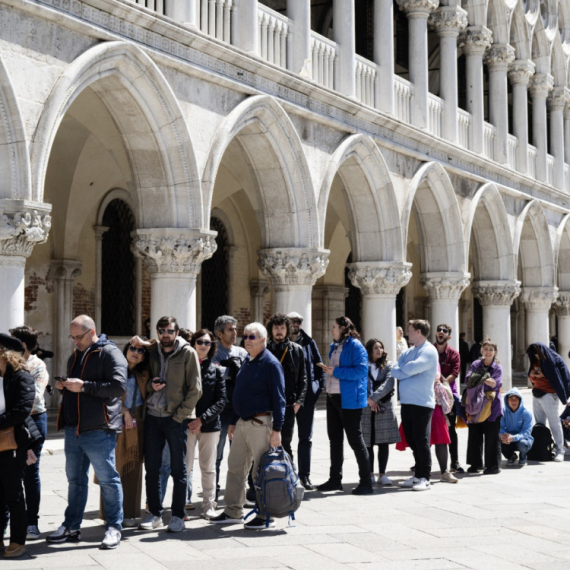"Serbian education methods outmoded"
A former deputy education minister says that education methods in Serbia are completely inadequate and old-fashioned.
Wednesday, 05.12.2007.
09:37

A former deputy education minister says that education methods in Serbia are completely inadequate and old-fashioned. According to a preliminary OECD study into education carried out among over 400,000 secondary school pupils in 57 countries, Serbia was ranked 41st, and was among countries that, according to the study, were “considerably lagging behind the OECD average.” "Serbian education methods outmoded" Srbijanka Turajlic says that it is very bad for Serbia that it is trailing so far behind the other ex-Yugoslav republics of Slovenia and Croatia, who were ranked 12th and 26th respectively. According to the study, Finland finished top, followed by Hong Kong and Canada. Turajlic was not in the slightest bit surprised by the findings. She told B92 that the very process of educating children indicated that the system in Serbia was totally inadequate and unsuited to contemporary society. “It’s absolutely fascinating that in a country where you get the impression that education is non-existent, results are published that, of course, show that we’re exactly where we deserve to be, given our attitude to education, but now everyone’s surprised. Maybe it’s not so bad that we’re poor compared to the rest of the world, but it’s terrible that we’re doing so badly compared to those who we were level with 15 years ago – namely, Slovenia and Croatia. We haven’t understood that technology and modern society have changed the face of education,“ she said. Turajlic stressed that secondary school pupils in Serbia were too concerned with facts, while facts no longer interested anyone in the world. “Encyclopedic data storage may have been interesting two centuries ago, today no-one needs it any more. What’s necessary in modern technological conditions is the ability to spot and solve tricky problems – thought is required. Sadly, in our schools, that is neither taught, nor perceived to be a positive quality,“ said the former minister. “As far as literacy is concerned, it’s not a question of whether a person is simply able to read a text, but whether they can understand it, and what kind of things they associate with the text. Unfortunately, that kind of thing wasn’t asked for when I was at school, nor is it considered very important today,” she concluded.
"Serbian education methods outmoded"
Srbijanka Turajlić says that it is very bad for Serbia that it is trailing so far behind the other ex-Yugoslav republics of Slovenia and Croatia, who were ranked 12th and 26th respectively. According to the study, Finland finished top, followed by Hong Kong and Canada.Turajlić was not in the slightest bit surprised by the findings. She told B92 that the very process of educating children indicated that the system in Serbia was totally inadequate and unsuited to contemporary society.
“It’s absolutely fascinating that in a country where you get the impression that education is non-existent, results are published that, of course, show that we’re exactly where we deserve to be, given our attitude to education, but now everyone’s surprised. Maybe it’s not so bad that we’re poor compared to the rest of the world, but it’s terrible that we’re doing so badly compared to those who we were level with 15 years ago – namely, Slovenia and Croatia. We haven’t understood that technology and modern society have changed the face of education,“ she said.
Turajlić stressed that secondary school pupils in Serbia were too concerned with facts, while facts no longer interested anyone in the world.
“Encyclopedic data storage may have been interesting two centuries ago, today no-one needs it any more. What’s necessary in modern technological conditions is the ability to spot and solve tricky problems – thought is required. Sadly, in our schools, that is neither taught, nor perceived to be a positive quality,“ said the former minister.
“As far as literacy is concerned, it’s not a question of whether a person is simply able to read a text, but whether they can understand it, and what kind of things they associate with the text. Unfortunately, that kind of thing wasn’t asked for when I was at school, nor is it considered very important today,” she concluded.























































Komentari 20
Pogledaj komentare